An artist once said, “My cats are sassy and sophisticated, but mostly, they’re picky.” All true! Cats are known for their sassiness and sophistication, and they are especially known for what downright picky eaters they can be. But you probably won’t soon find many cats that don’t love peanut butter.
The enticing aroma, the nutty taste, the rich texture – these all seem to draw in some cats like it’s a freshly procured mouse. And it’s that love of this very tasty human food that begs the question – can cats eat peanut butter? Is it toxic for their digestive systems? And if it is not toxic for the feline persuasion, does it provide any health benefits whatsoever to them?
[amazon bestseller=”best cat food”]
Is Peanut Butter Toxic for My Cat?
Technically, peanut butter is not toxic to cats. However, peanut butter is definitely not something cats need to eat to live. Cats are carnivores, which means they require healthy animal products to survive. As humans, you and I are omnivores. This means we eat both animal and plant matter.
Some animals are herbivores, which means they eat only plant matter. These include such as animals as horses, cows, and sheep. But your cat? She only needs animal matter to live.
She doesn’t need to eat plants, and many of them are toxic to her. And, even though it’s not necessarily poisonous to her, your cat most certainly doesn’t need to eat peanut butter. Because she’s a carnivore, peanut butter provides absolutely no nutritional value for her.
As a matter of fact, she may even be allergic to peanut butter. And, if she gets too much peanut butter, she could develop diarrhea. Because of the types of fats, protein, and sugar contained within it, peanut butter can cause your cat gastrointestinal upset, particularly if she eats too much of it.
Does Peanut Butter Have Any Health Benefits for My Cat?
Again, though peanut butter won’t necessarily harm your cat, it provides absolutely nothing of the nutrients your cat needs. Cats need animal-based proteins to survive. These include the matter contained within the animals you likely already know your cat likes to eat, such as mice and birds. Cats’ digestive systems can’t really process the types of proteins, fats, and sugars that peanut butter contains. Peanut butter also does not contain the amino acids your cats’ organs need.
Is It Okay for My Outdoor Cat to Have a Little Peanut Butter?
This actually is an excellent question. Why? Because sometimes peanut butter is used as a means of killing rodents. Due to the fact that mice, rats, and other rodents love the taste of peanut butter, many homeowners and business owners actually use peanut butter around their properties as a means of killing them. Poisons that are meant to kill these animals often are disguised with peanut butter, which draws in these pests to eat the treat and die. If you feed your outdoor cat peanut butter and she develops a taste for it, she can encounter this situation as she roams the neighborhood. She’ll be drawn to the peanut butter and ingest the poison that is meant to kill pesky rodents.
[amazon bestseller=”cats vitamins”]
Is It Okay to Give My Indoor Cat a Little Bit of Peanut Butter?
It depends. If you’ve given your kitty a little bit of peanut butter in the past, and she had no negative reactions to it, then it’s probably okay to give it to her. But be very careful not to give her too much, as her little digestive system won’t be able to process much of it. Additionally, most peanut butter brands contain an inordinate amount of sugar, which is bad for your kitty. Too much of it can cause parasites, yeast infections, and diabetes. It can even lead to your cat developing some types of cancers. And, because peanut butter is very fattening, it can also cause obesity in your cat, which isn’t any more healthy for her than it is for you.
Which Human Foods Are Toxic for My Cat?
All cat parents need to know that there are a number of human foods that are toxic for their kitty kids. As has already been established, cats’ digestive systems are not like that of humans. Cats are ‘obligate carnivores,’ which means they only derive their nutrient requirements from animals. This means, of course, that they do not need to eat plant matter to live. Unlike us humans, who are omnivores, meaning we eat both plants and animals, cats do not derive any of their nutritional needs from plants whatsoever. In fact, many of the plants found in nature are quite toxic to cats. But it’s not only plants that can be poisonous to your kitty. There are many human foods that are also toxic for your cat. The following list includes some of the main human foods that are toxic to your cat. These were chosen because they are the most common foods kitty parents ask about when choosing what to feed their cats. This list is not comprehensive.
Citrus
Fruits that contain citric acid can negatively impact your cat’s central nervous system. The various other parts of these foods, such as the peels, stems, and leaves also contain citric acid. In small doses, they can cause your cat minor stomach upset.
Caffeine Products
Caffeine is just plain bad for your cat. Foods that have caffeine contain a substance called ‘methylxanthine.’ If your cat ingests this substance, it can cause severe gastrointestinal upset in the form of diarrhea and vomiting. It can also cause excessive panting and thirst, excessive urination, abnormal heart rhythm, seizures, tremors, and ultimately death.
Chocolate
Chocolate is very toxic to your cat because it contains caffeine. As noted above, if cats ingest any products containing caffeine, they can develop severe health problems from major GI upset to abnormal heart rhythm and even death. Do not give your cat chocolate.
[amazon filter_items=”2″ select=”2″ bestseller=”best cat food”]
Grapes and Raisins
Conventional medicine is unsure why grapes and raisins are toxic to pets. Some researchers believe it’s the skins that are poisonous, but this has not yet been proved. All that is known about these is that your cat should never eat them because they are toxic to her.
Milk and Dairy Products
Believe it or not, cats should not drink milk. The old concept of leaving a saucer of milk out for your cat really doesn’t hold true anymore because we now know cats simply cannot process the enzyme that breaks down lactose in milk (lactase). All such dairy products should be off limits to your kitty, as these can cause severe gastrointestinal upset.
Nuts
The fats and oils contained within nuts such as pecans, walnuts, and almonds can cause your cat severe vomiting and diarrhea. It can even lead to pancreatitis.
Raw Meats, Eggs, and Fish
Contrary to what many believe, cats should not eat raw meats, eggs, and fish. The reason for this is that they could contain harmful bacteria such as E. coli or Salmonella. Additionally, you should not give your cat animal bones, even if they are cooked. Your cat could choke on these, or a bone splinter could puncture his digestive tract.
Salt and Salty Snacks
Just as it is for humans, too much salt is very bad for cats. Consumption of large amounts of salty foods can produce excessive urination or thirst in your cat. It can lead to severe gastrointestinal problems. It can even cause elevated temperatures, seizures, and ultimately death.
Xylitol
Sugar can be bad for your cat, but Xylitol can be even worse. Xylitol is a ‘sugar alcohol,’ which means it occurs naturally in small amounts in fruits and vegetables such as pumpkin, plums, cauliflower, and strawberries. Mostly, xylitol is contained within sugar-free candies and gums. These products and others that contain xylitol should never be fed to cats because it leads to severe health conditions such as hypoglycemia, liver failure, and death.
Again, please note that this list is not all-inclusive. For more information on human foods that are toxic to your cat (and other pets), the website of the ASPCA (The American Society for the Prevention of Cruelty to Animals) provides a comprehensive list of these. If you suspect your cat has ingested something toxic, immediately contact a poison control center. One such center is the ASPCA Animal Poison Control Center at (888) 426-4435.
What Should I Feed My Cat?
Because your cat is an obligate carnivore, meaning she needs nothing outside of products that come from animals, her diet should include meat and fish. A little supplementation here and there with brown rice also can be included in her diet. In order to develop the best diet for your kitty, consult with her veterinarian to learn about which foods on the market today contain the best combinations of nutrients to optimize your cat’s health.
[amazon bestseller=”cat wet food”]
Additional Tips
- Be mindful of cats nibbling on plants: Because cats are carnivores, they derive no nutrients from plants, and many plants are quite toxic to your cat.
- Your cat can develop diarrhea and vomiting from peanut butter: If your cat has already developed a taste for peanut butter, it’s okay to give her a tiny bit here and there. But too much of it will lead to gastrointestinal upset. If your cat develops vomiting, diarrhea, excessive thirst or panting, or any other signs of GI upset that don’t go away in a couple hours, take her to your vet.
- Signs your cat is allergic to peanut butter: Cats aren’t generally allergic to peanut butter, but some can be. Signs your cat is allergic to it include excessive itching/scratching, difficulty breathing, swelling, and/or hives. Contact your veterinarian or take her to a vet immediately.
- Poison control: Again, if you suspect your precious cat has ingested anything toxic, please contact the ASPCA Animal Poison Control Center at (888) 426-4435. This resource can be contacted 24 hours a day, 365 days a year for answers to questions related to potential animal poison-related emergencies.
Conclusion
No, peanut butter is not necessarily toxic to cats. Yes, cats can eat a little bit of peanut butter. But should you feed peanut butter to your cat? The answer is quite simply no.
The fact is that cats are obligate carnivores, which means they need only meat products to survive. They don’t need plants, and many are toxic to them. And, like humans, they surely don’t need to eat snacks or any of the other processed and junk-filled foods we eat that we don’t need to survive.
Peanut butter simply does not provide any nutritional value for your cat, and it may even cause her harm if she gets too much or she’s allergic to it.
So do your cat a favor, and don’t feed her peanut butter. Talk to her veterinarian about what foods are best for her, and develop a healthy regimen that keeps her little digestive system running in optimum order.
"In ancient times cats were worshipped as gods; they have not forgotten this."
-- Terry Pratchett

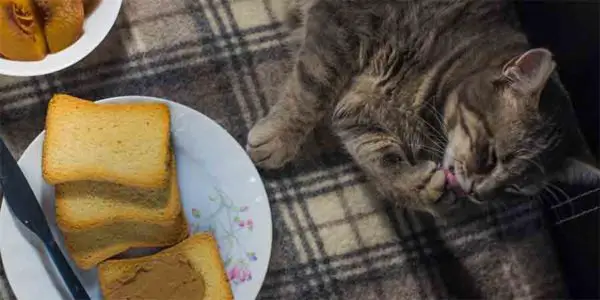
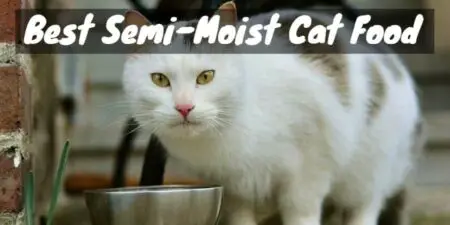
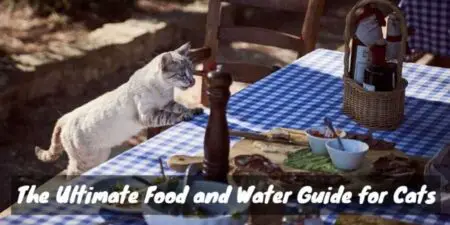
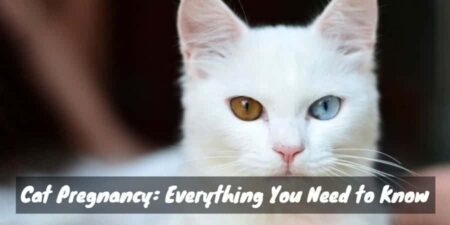
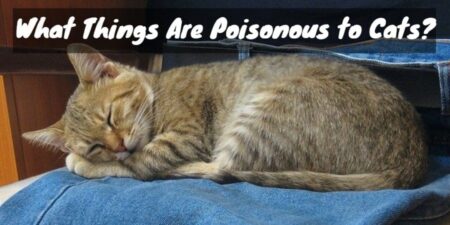
I LOVE THE VIDEO BUT WHEN MY CAT GET PEANUT BUTTER HE HAS DIAREA AND POOPS ON THE FLOOR.